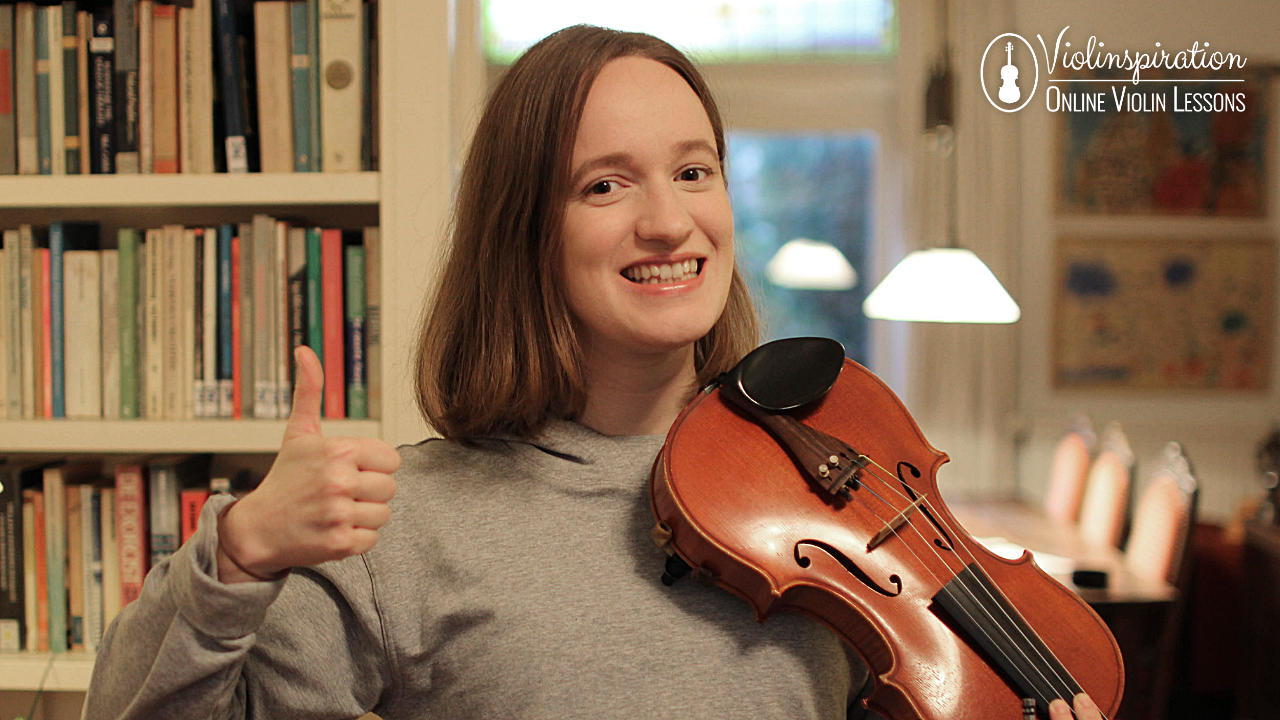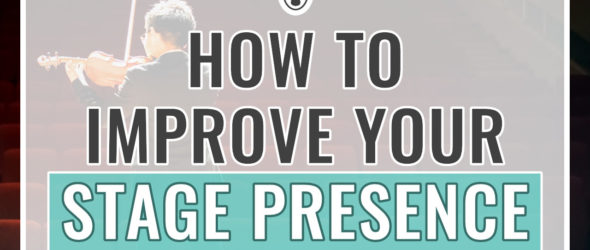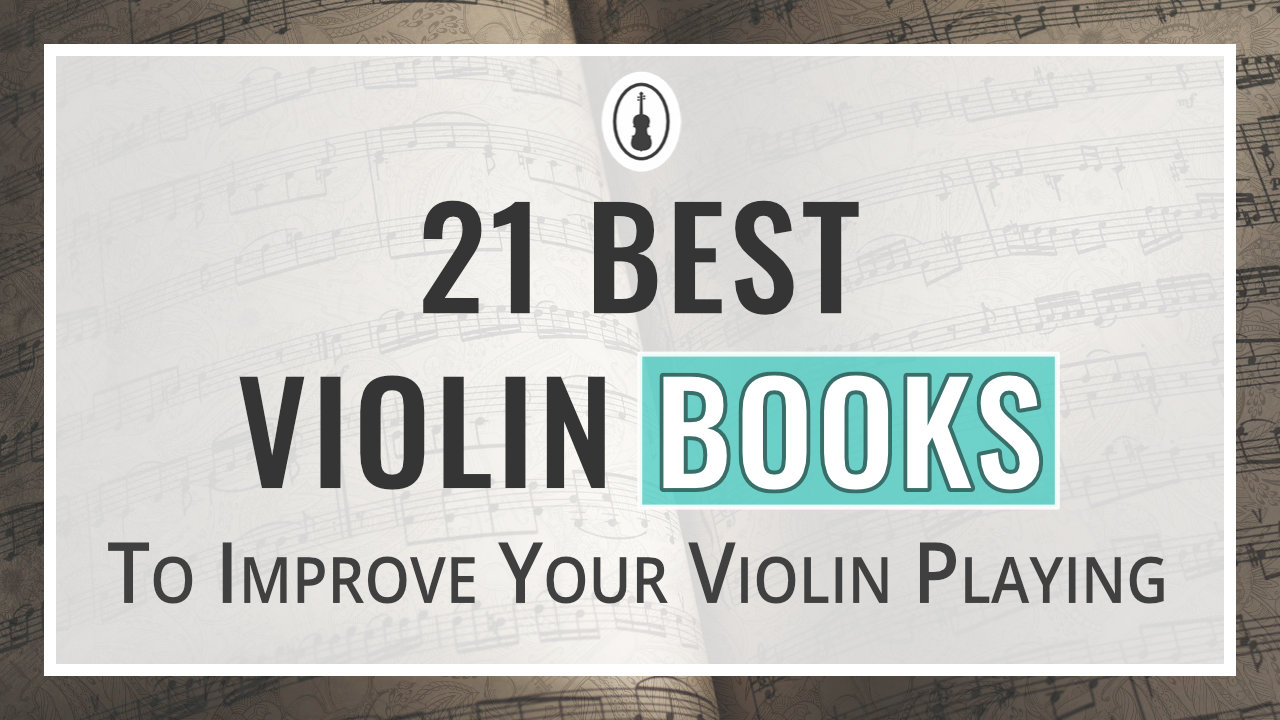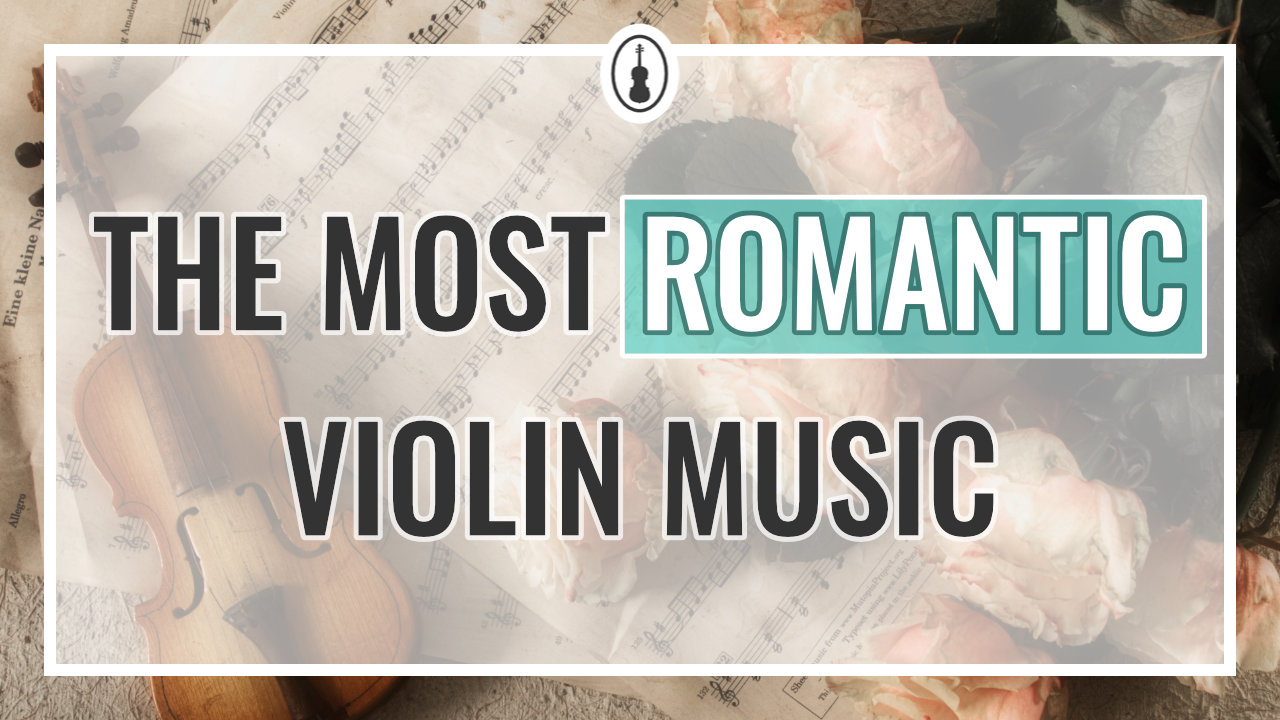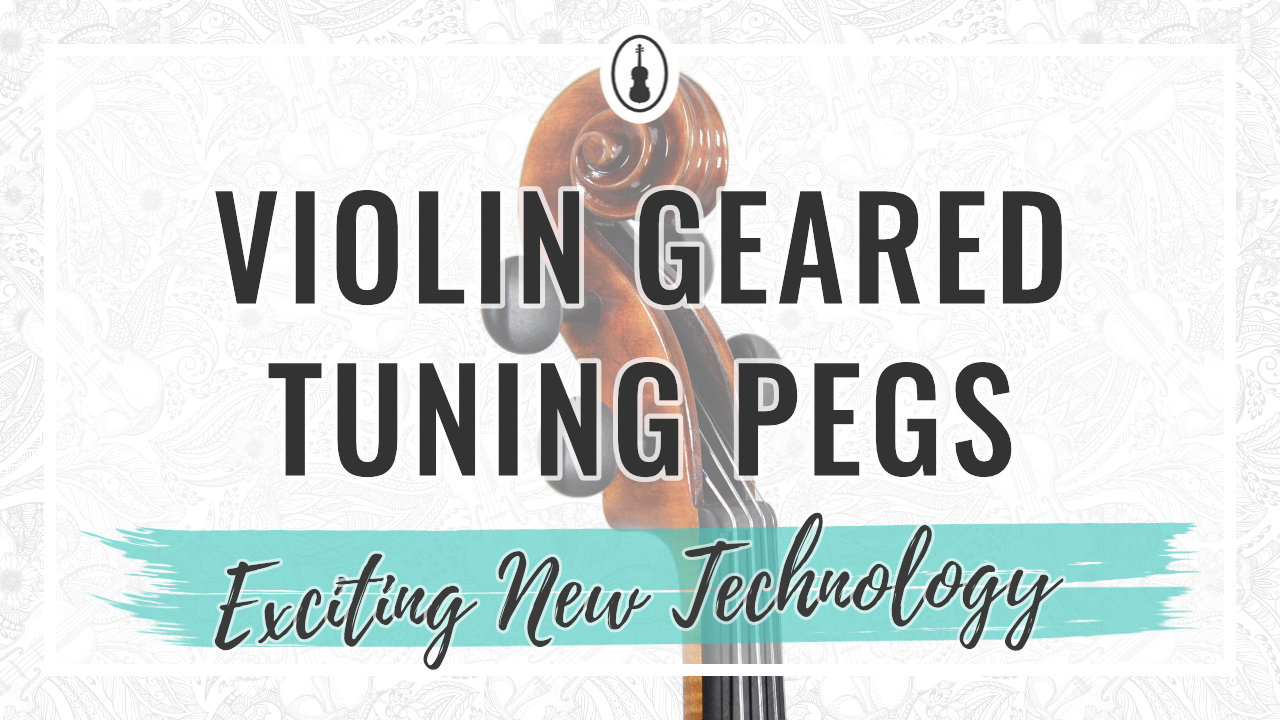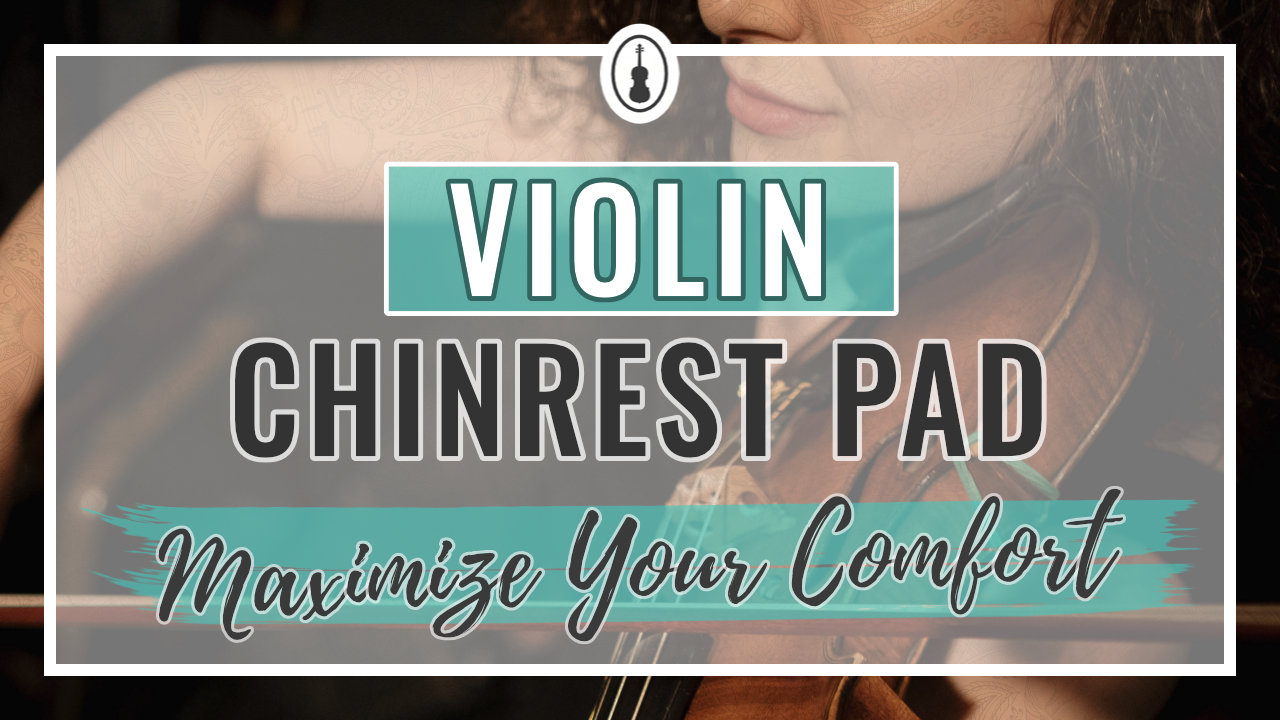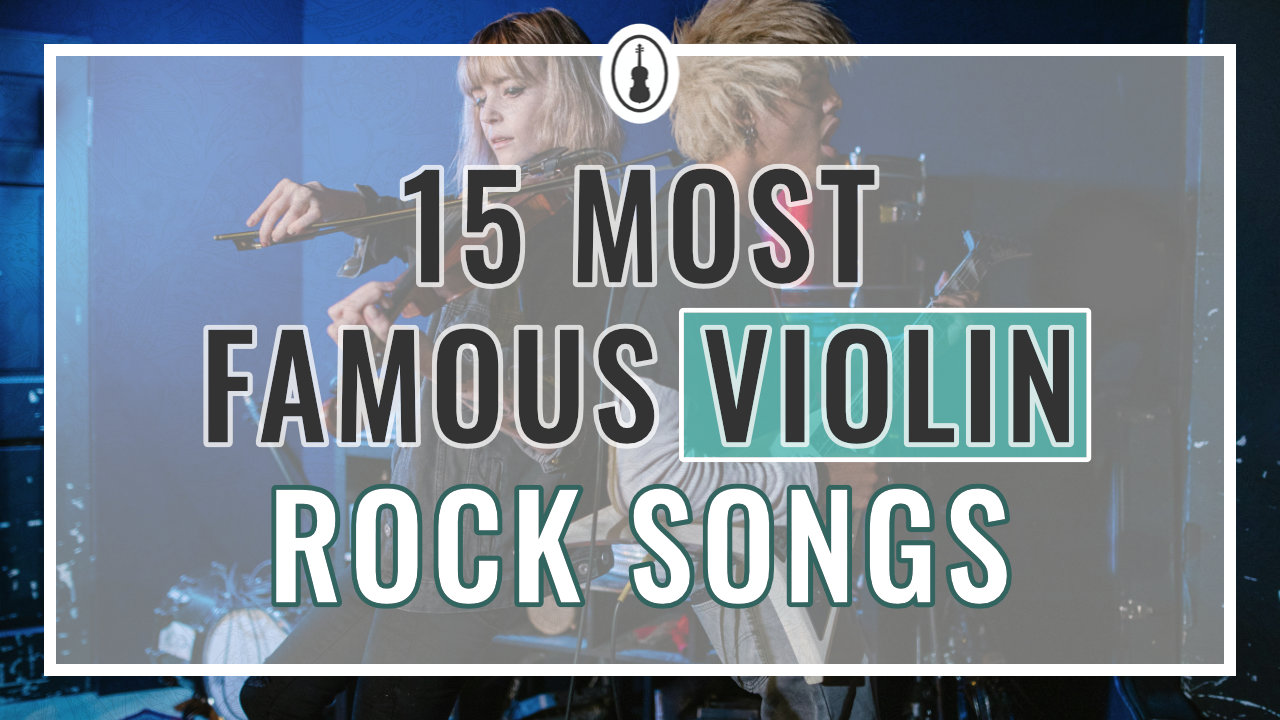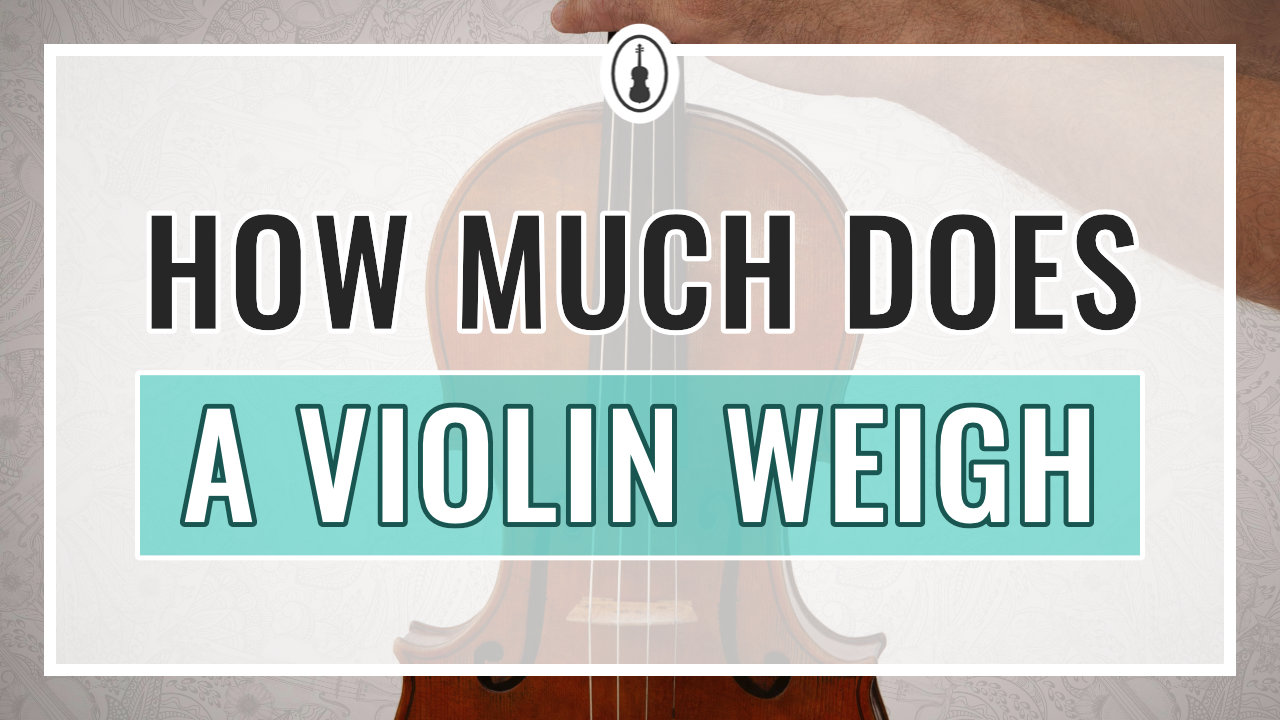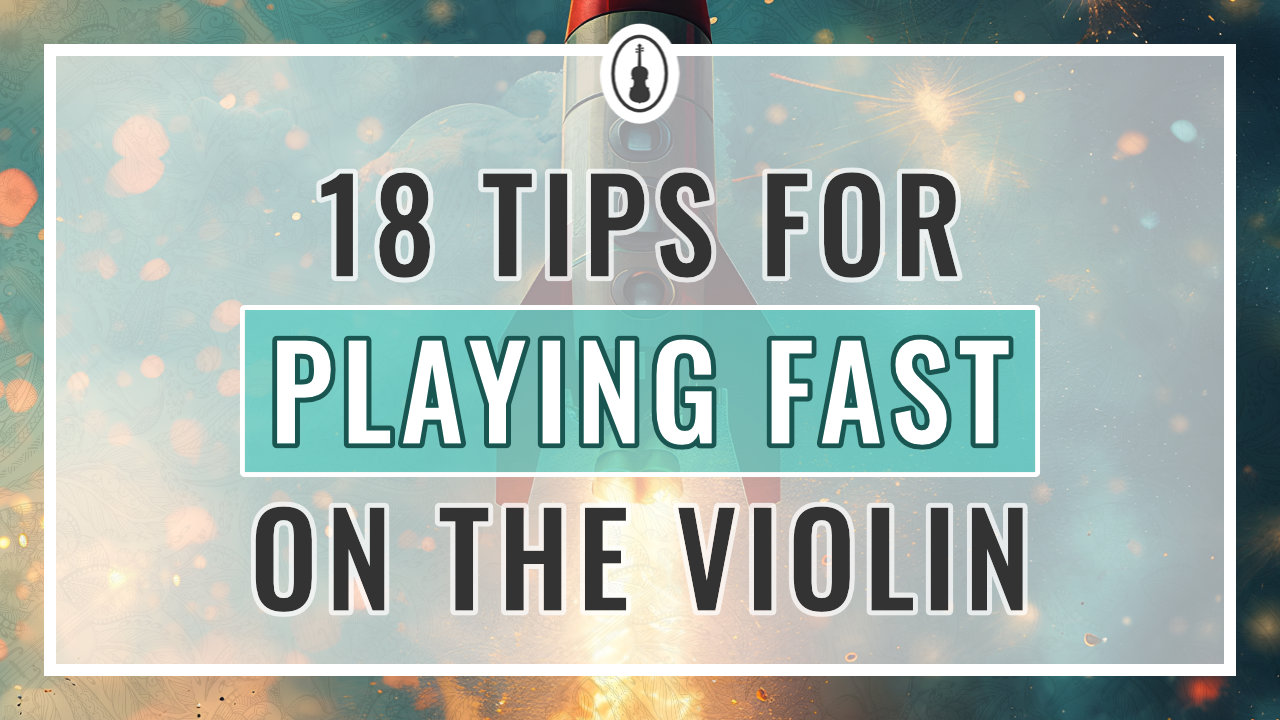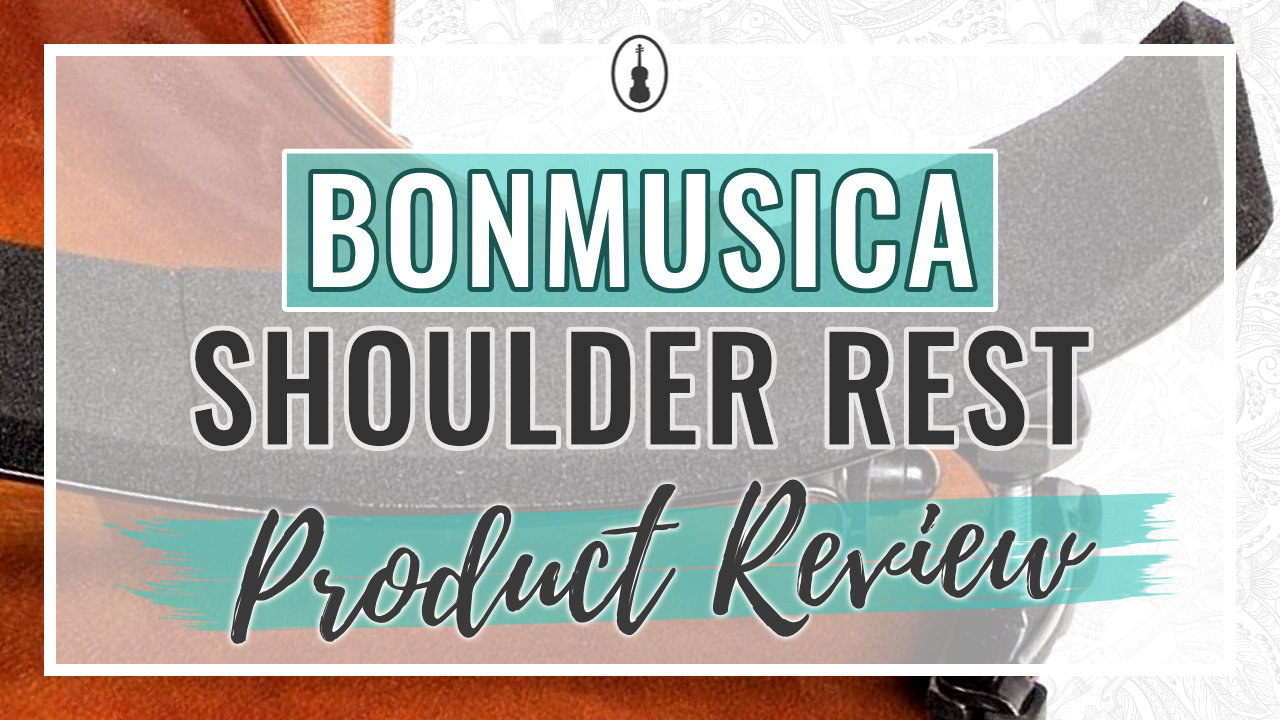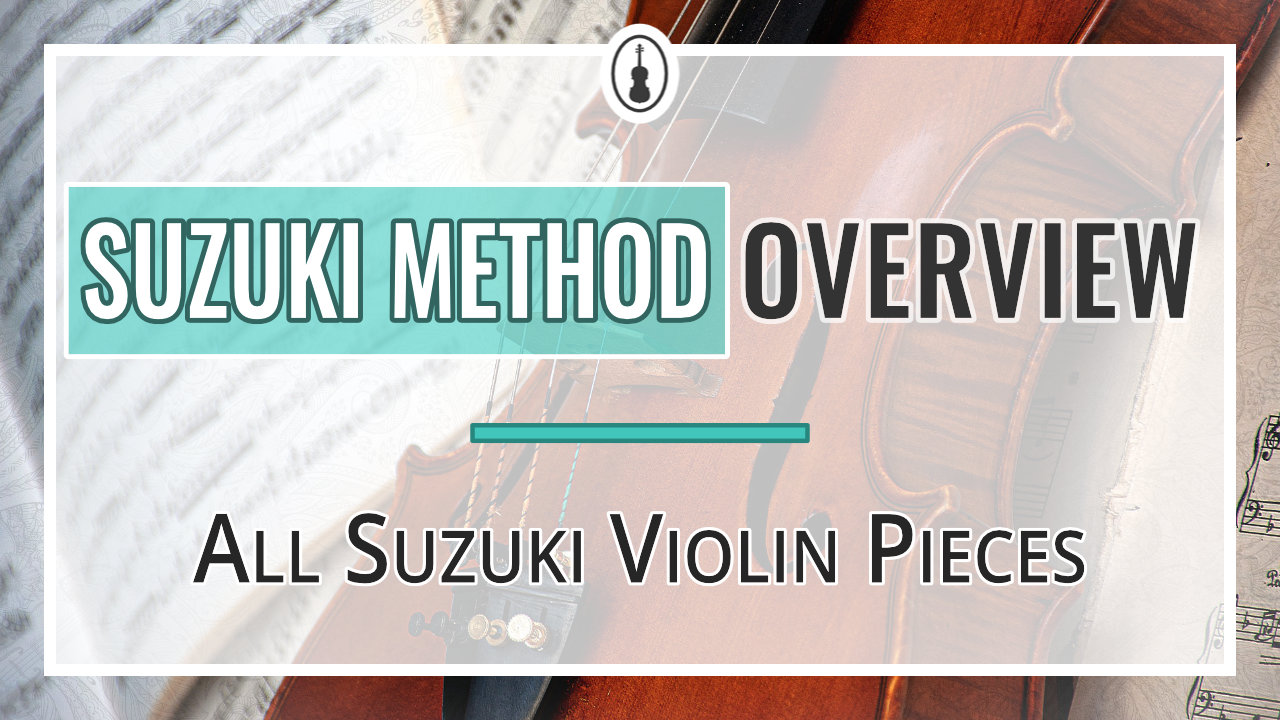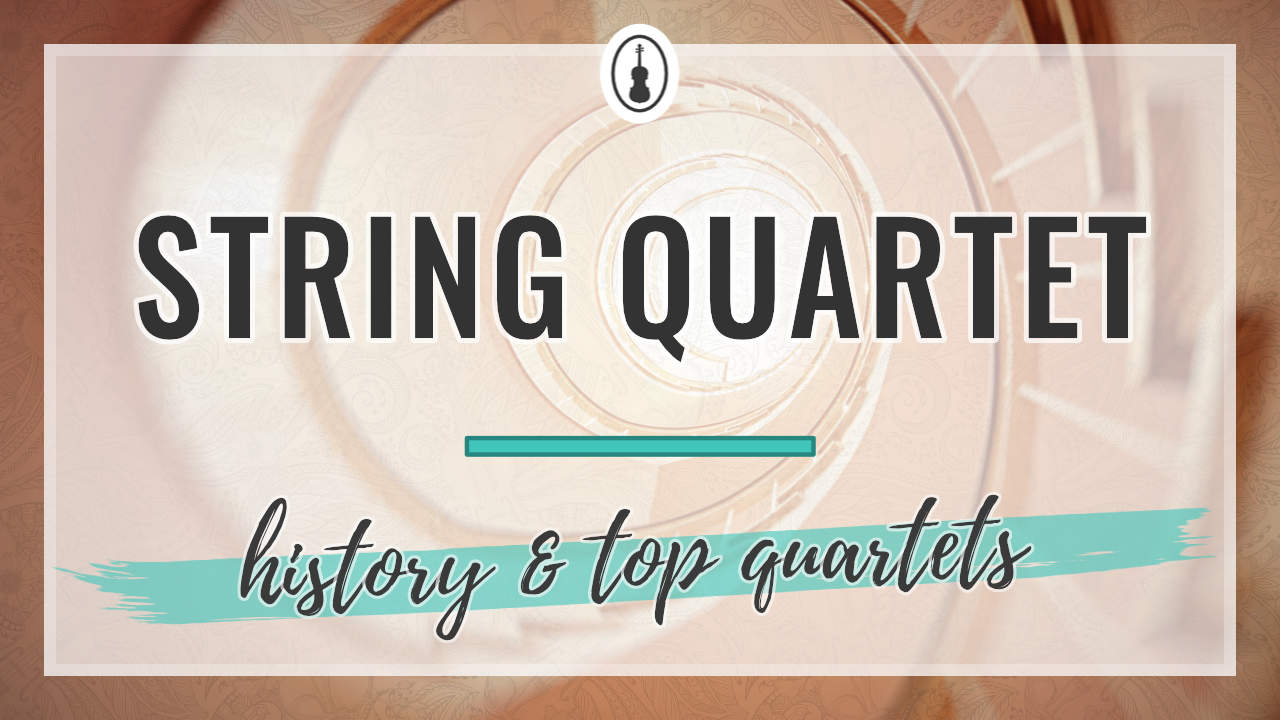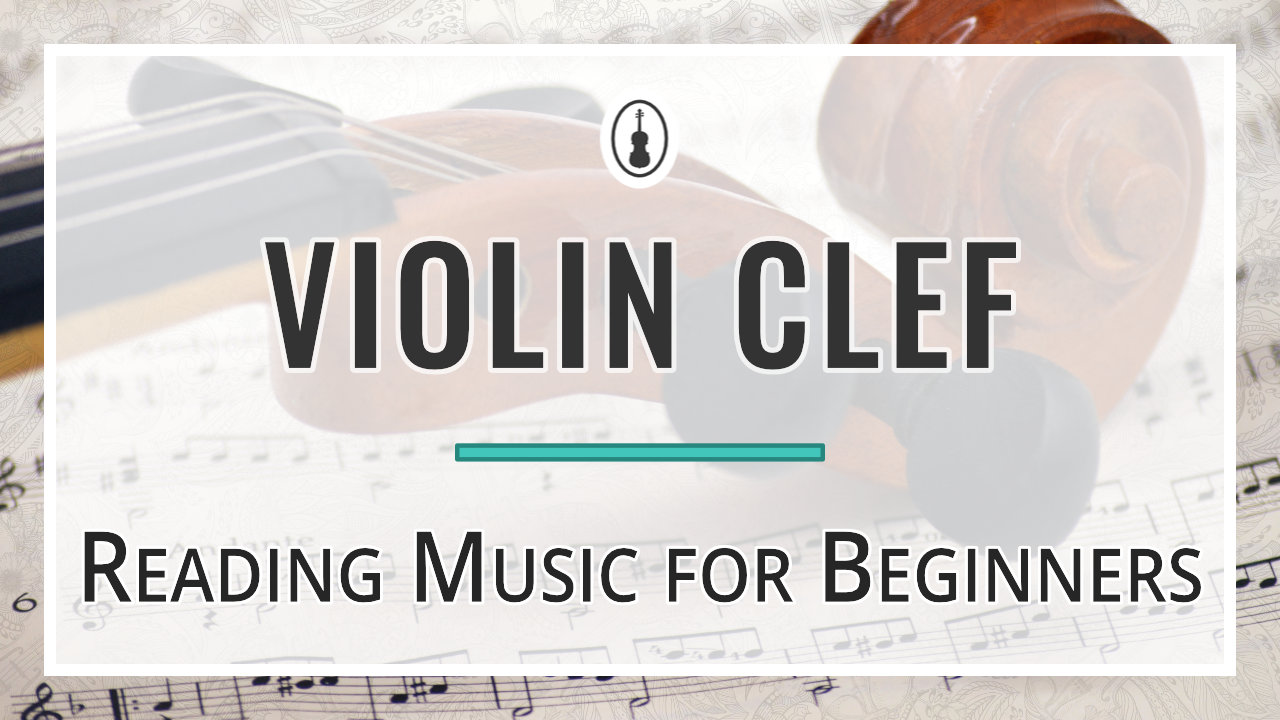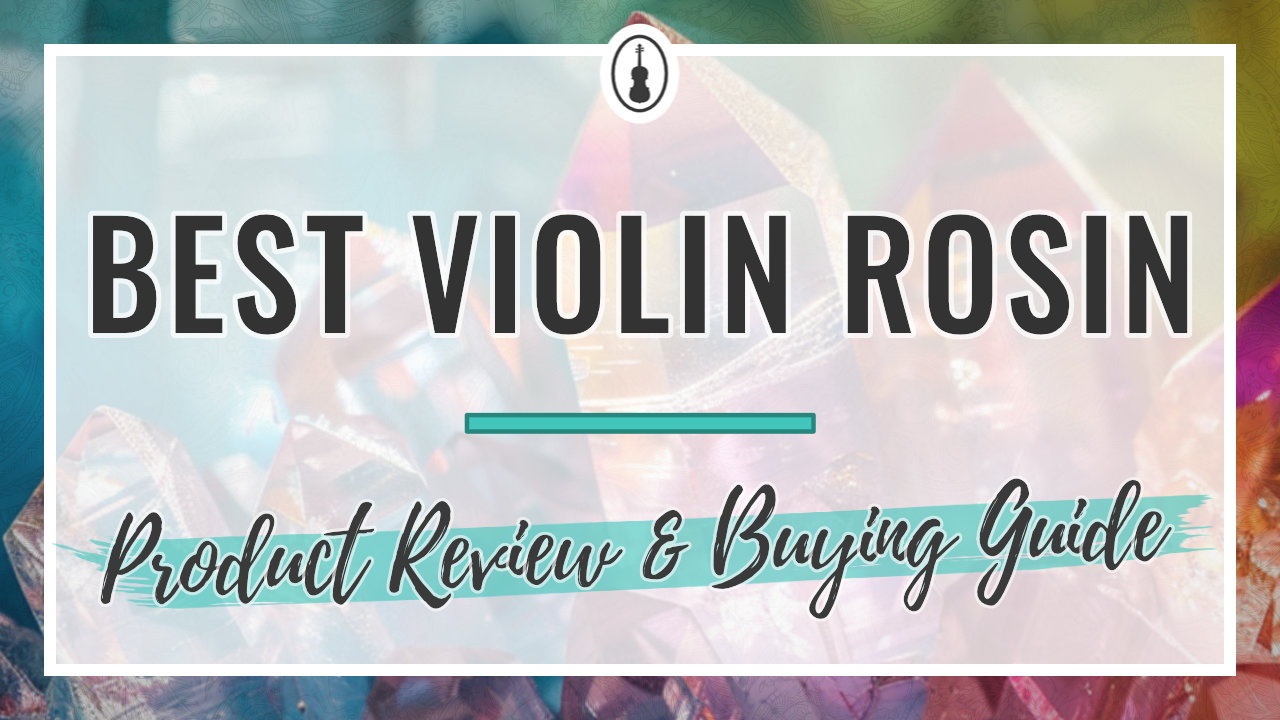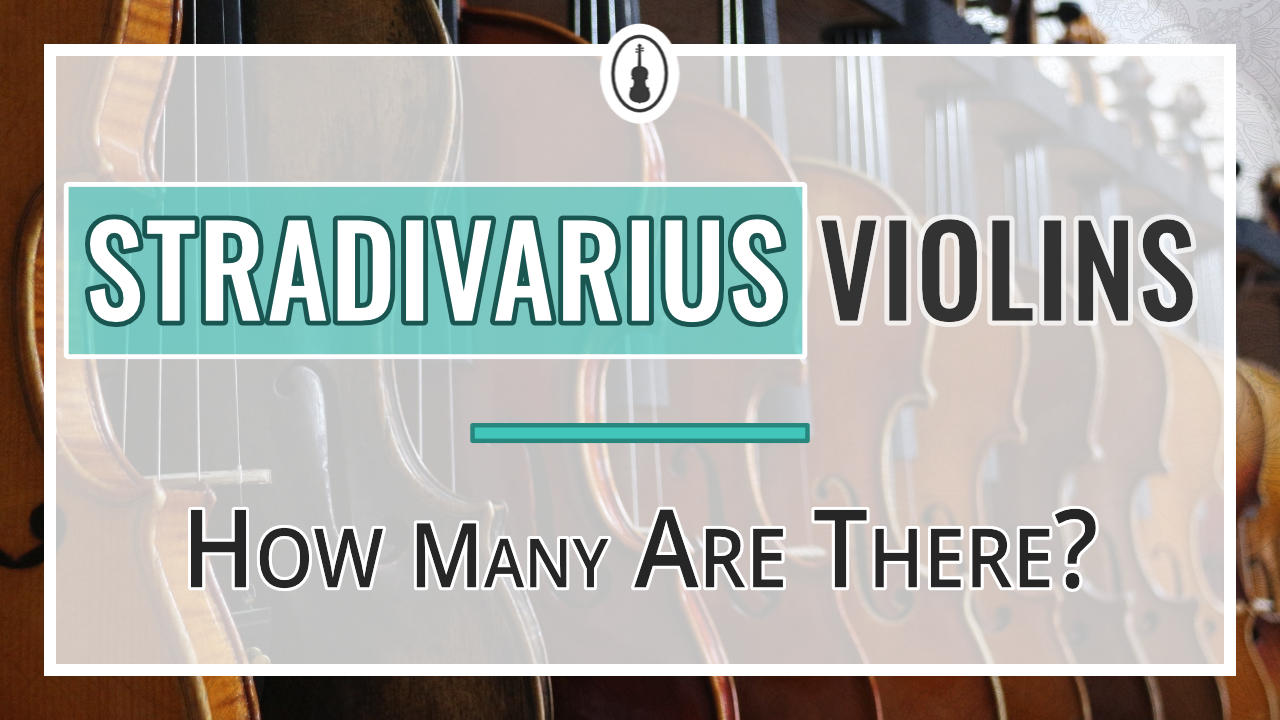Tips for how to counter stage fright and have an energetic stage presence
Have you ever been to a concert where you loved the music but didn’t find it easy to connect to the performer due to boring or awkward stage presence? Having a good stage presence is a crucial skill for all violinists to master in order to connect with the audience. From the second you walk onto your stage, you want to capture the energy and charisma of a confident performance. You want to make people feel at ease looking at you, even if you are shy or nervous which is a totally normal reaction.
Once you have worked hard to play all the notes in tune and musically, you want to start performing. Performing requires a different set of skills than playing in your practice session, in that it’s how you engage with your audience. Regardless of how nervous you may be, you want to capture your audience’s attention from the second you start.
Performances can range from playing in front of your close ones at home, maybe sometimes in front of a camera during an online meeting, to performing on stage – solo or with an orchestra. Whatever your stage is, you should always treat performing as a celebration of your achievements! You want to share what you’ve been working so hard on with those listening and watching.
In this article, I will share some tips on how to build a more confident stage presence and how to have more fun even if you have stage fright.
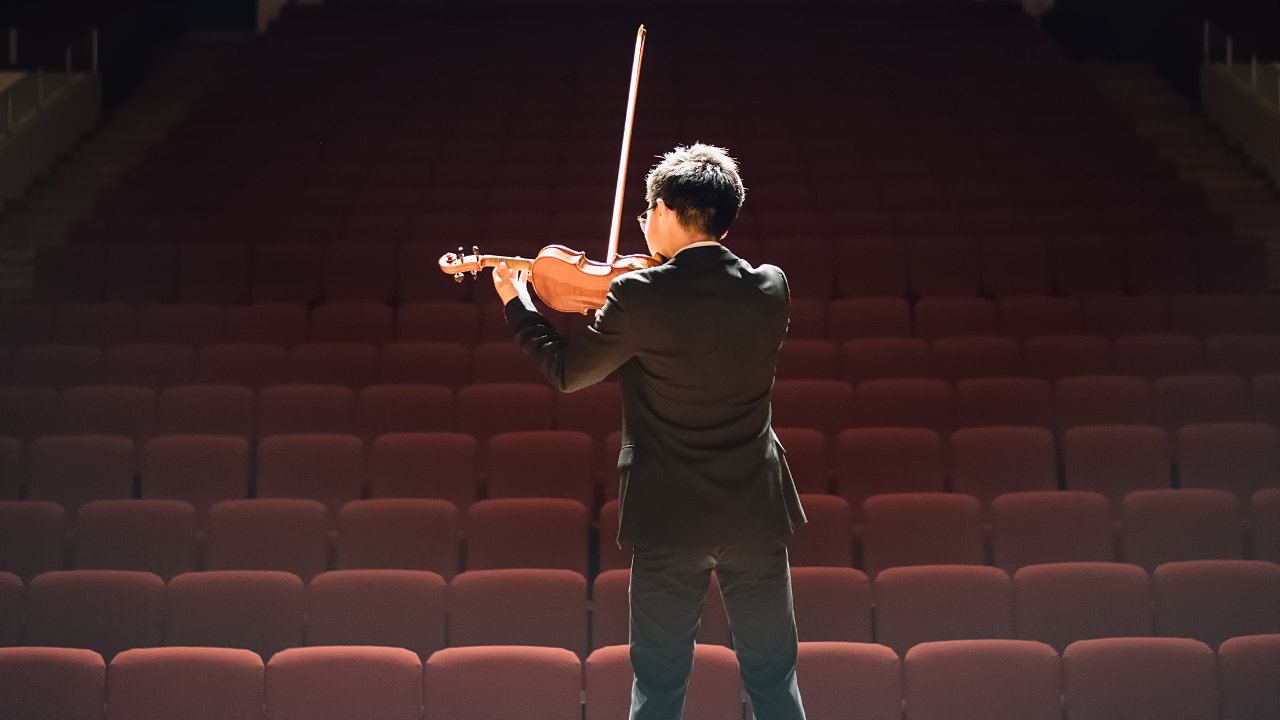
What is stage presence?
Stage presence refers to the energy or appeal that a musician communicates to the audience while performing. Great stage presence invites the audience into the musician’s performance and story. It makes the audience feel comfortable and tuned into the performance beyond just the notes.
Think of your favorite band, like the Beatles for example – if you watch a video of them performing live, you will see them have great command over the stage and their audience.
Why is good stage presence important?
Stage presence is important because performing music is both an auditory and a visual experience. Having a good stage presence allows you to interact with your audience, connect, and really bring a different level to your music.
Think about the difference between hearing a recording of your favorite song versus being able to see it live in person. It is likely that the performance will be more memorable to you in person because you feel more connected to the performer, song, and audience members around you.
A good stage presence with the proper posture in the first place helps you look more like a ‘pro’ even if you are just a violin beginner. I’m discussing it in the video below along with two other aspects that will help you look less like a beginner and more like a professional violinist:
Before I share my tips with you about improving stage presence and dealing with stage fright, let’s examine together what successful performers do on stage.
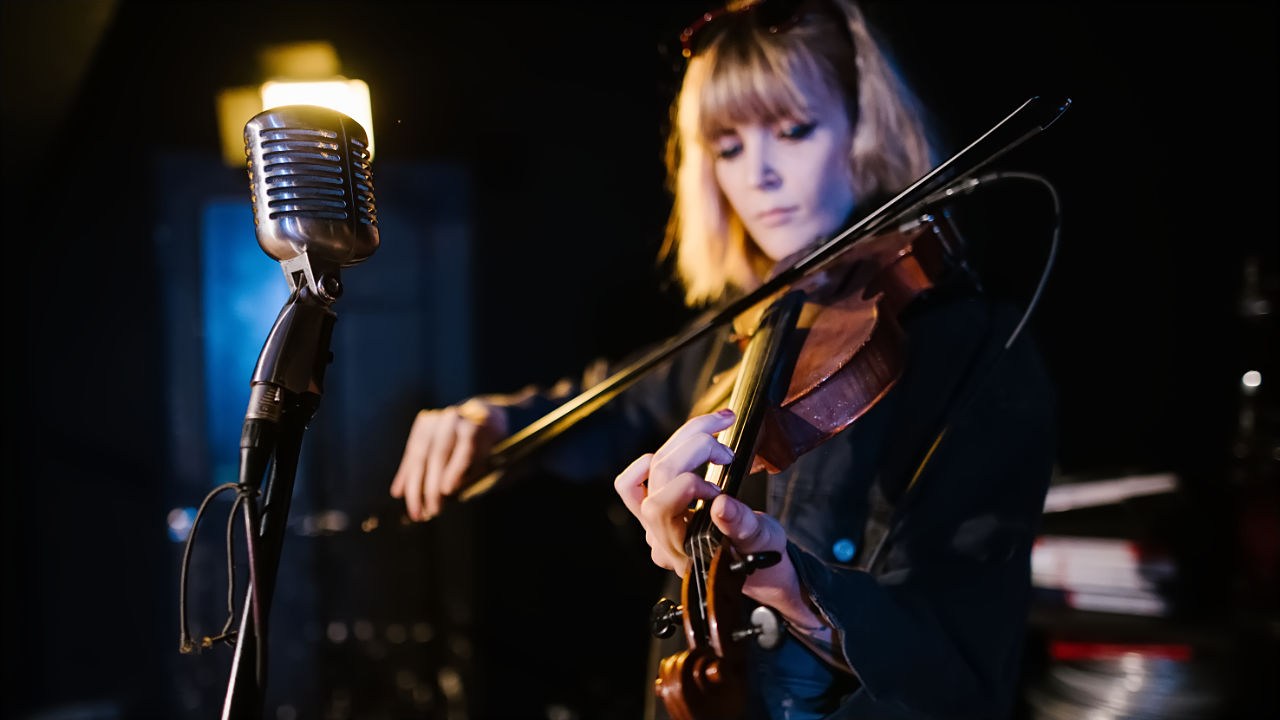
What do good performers do on stage?
Good performers draw you in. They make you forget about what’s happening outside of the present moment and make you easily enjoy being in their company.
Surprisingly, being a good performer takes time and practice to master. Very few people are born with natural charisma or the ability to channel nerves into an exciting performance.
Below are five markers of what great performers do:
1. Express themselves
There is a lot of freedom in a performer being able to be themselves on stage. They can showcase their own personal style, ability, and mannerisms without judgment. The music is a great vehicle for them to show the audience who they are and what their story is.
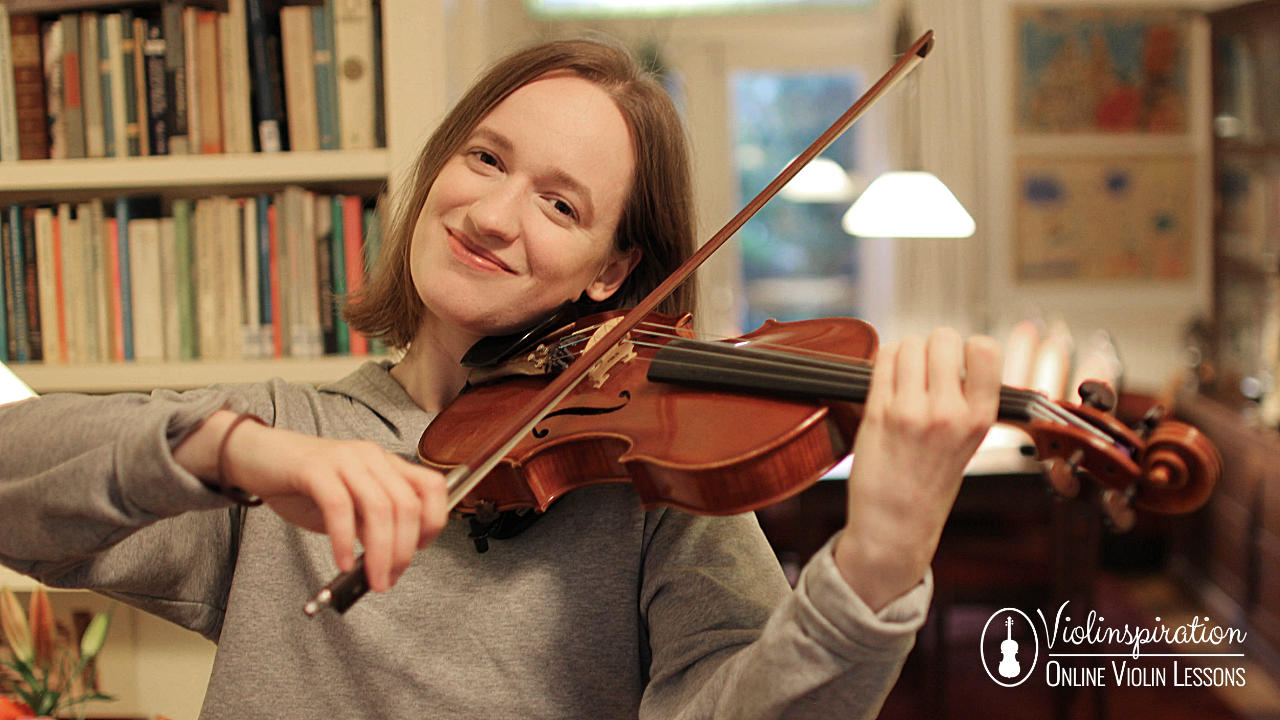
2. Are present
When you see your favorite rock band or classical soloist, they appear to be in the zone. They have done the preparatory work so that they can simply showcase their hard work. They put all their focus and energy into the performance and the audience in front of them. It seems that they do not think about the technical things or any mistakes that might happen, just enjoy every moment for what it is.
And mistakes or unexpected problems do happen, here is a short example of string breaking during a concerto performance:
3. Plan for transitions
When you watch a band perform, there are never any awkward silences once they are on stage. They are constantly interacting with other band members, with the audience, or playing. When they are finished with one song, they are talking about it and getting ready for the next song. They have a plan for transitions and if they need an extra bit of time, they can fill it by engaging with the audience.
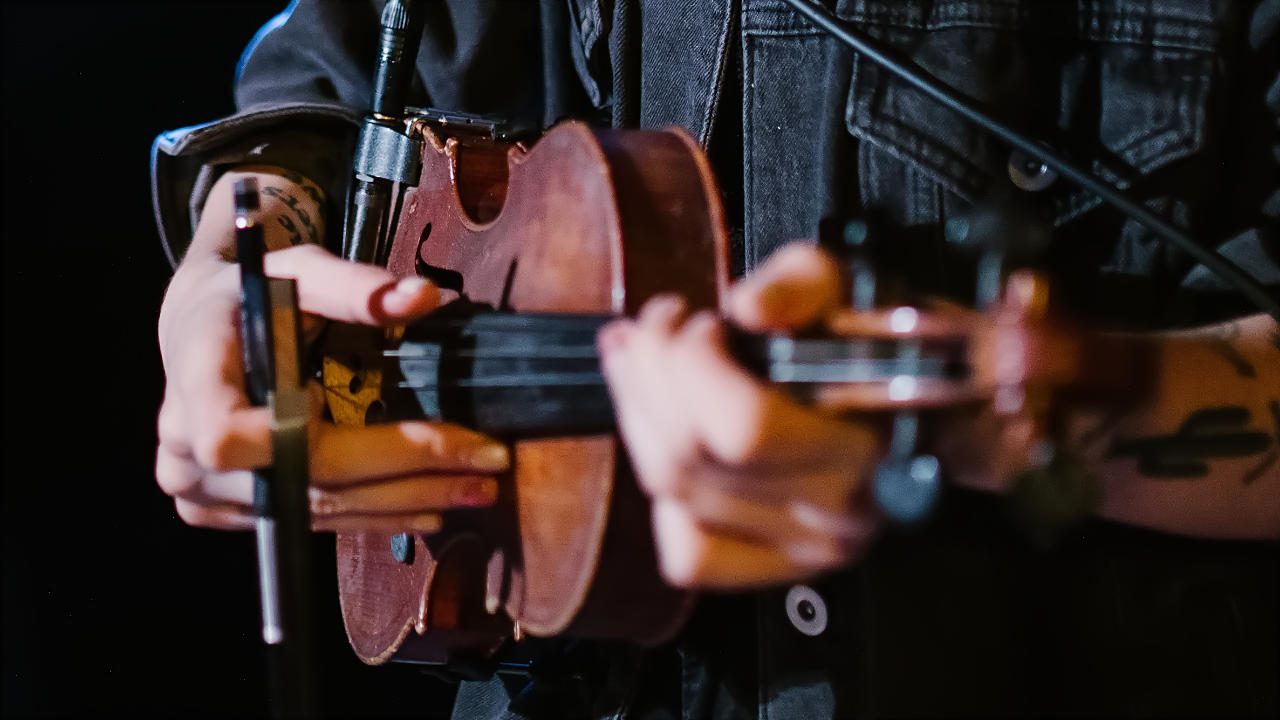
4. Are mindful of body language
Great performers use their bodies as a tool to connect with their audience. Rockers are fantastic at using the space around them to their full advantage, including props like the microphone. Looking at their audience, making use of their space, smiling, and moving along to the music – it all helps lead the audience in feeling the energy of the performance. Great performers use body language to make their crowd feel comfortable.
5. Involve the audience
The more an audience is drawn in, the more interested they are. Great performers make the crowd forget what’s going on outside the venue and instead just connect with the performer. Some performers involve the crowd by talking before the show starts or in between songs. Others encourage the audience to sing or along. At other times, the presenter announces the pieces by listing the most interesting facts from the composer’s life and the times in which they were composed, sometimes adding related anecdotes. Getting the audience to actively participate or sharing with them interesting facts makes them more engaged and feel like a community.
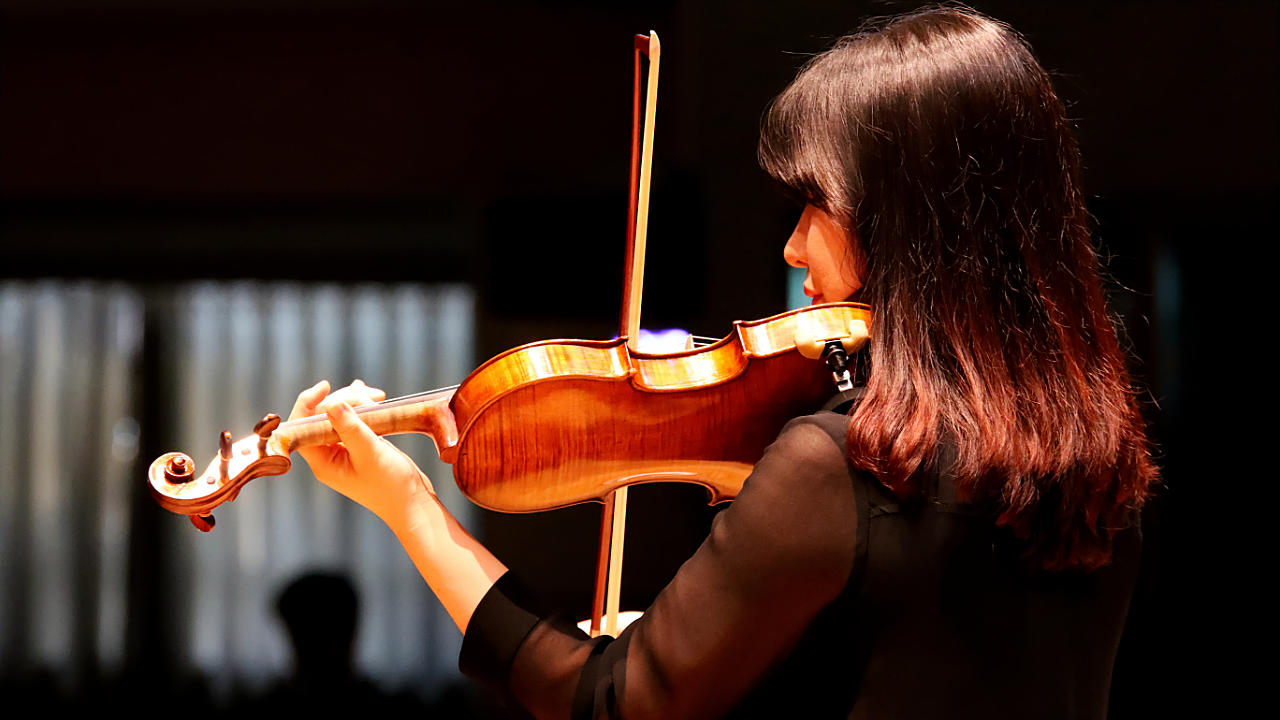
How to improve stage presence?
So now we know what makes a great performer, but how do you improve your violinist stage presence especially if you’re shy?
Firstly, think about what motivates you to perform: sharing your music with people! Think about how hard the violin is and how you’ve been able to learn it! You have worked on the difficult part of learning how to play, so now it’s time to share with others what you’re able to do.
Remember, the audience is rooting for you, not against you! You are sharing your hard work with them, so think about the music more than the idea that they are watching you. Over time and with more performances under your belt, many of these tips will hopefully become your second nature.
1. Plan out as much information ahead of time as possible
Start with the preparation of your stage. If you are going to play at your home, choose the room and even the exact spot where you are going to play. Decide whether you will stand or sit while playing. Do you need a music stand, or you’re going to play from memory? Make sure that everything you need is at your fingertips, but nothing more – remove distractions. Last, but not least, you can think of your background and add some decorations.
If you are performing in your living room or for a camera, try to plan out where you want to stand to maximize your sound. You want the audience to be able to see and hear you well.
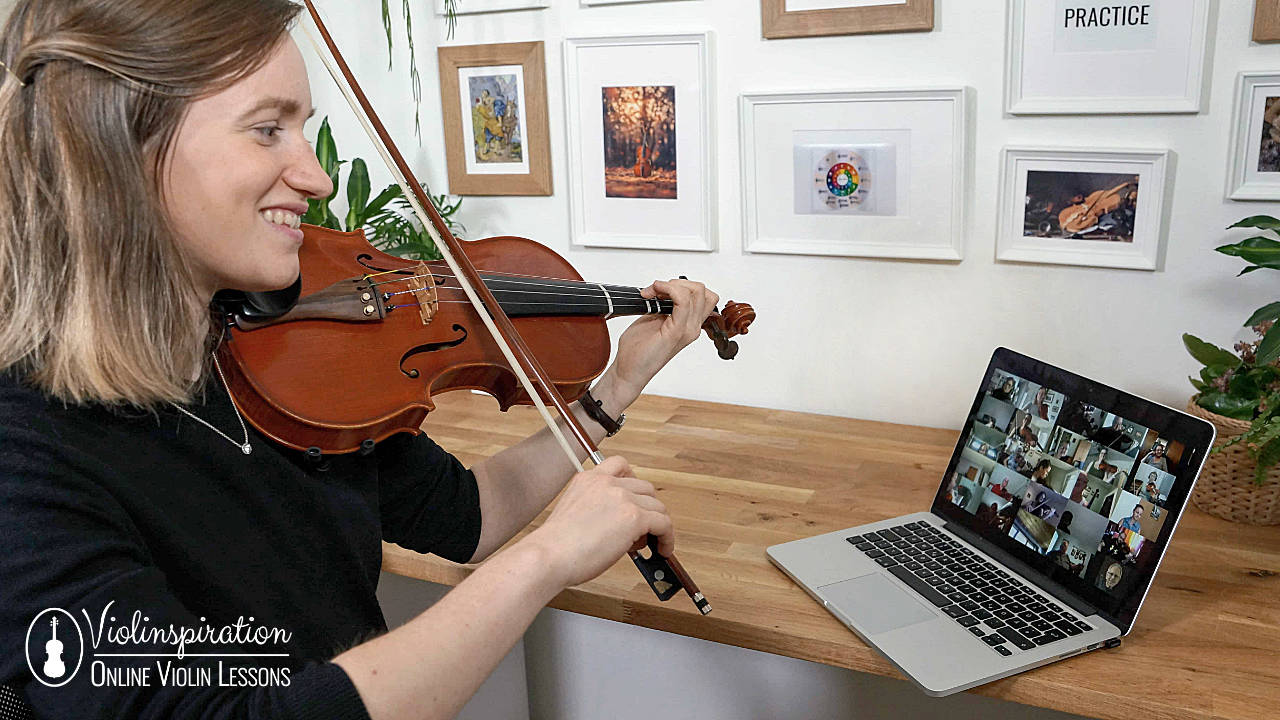
2. Relax!
This tip is definitely easier said than done, but try to be as relaxed as possible. The audience picks up on how you’re feeling so if you’re nervous, the audience is likely to feel anxious with you. Take a few deep breaths and imagine your concert is going smoothly. Feel good knowing you are prepared enough. No need to stress about playing Twinkle Twinkle Little Star or a similar beginner piece and not one of the violin concertos or other famous pieces because you are going to show your current stage of learning.
3. Channel a confident persona
Before you even meet and greet your audience, think about the characteristics that make you you. In your most idealized version of yourself, how do you present yourself to others? Try to channel some of these ideas as you get ready for your performance. The audience came to see you, so try to showcase your personality on stage. And if the worst comes to worst, just fake it till you make it. No one will know the difference between true confidence and fake bravado.
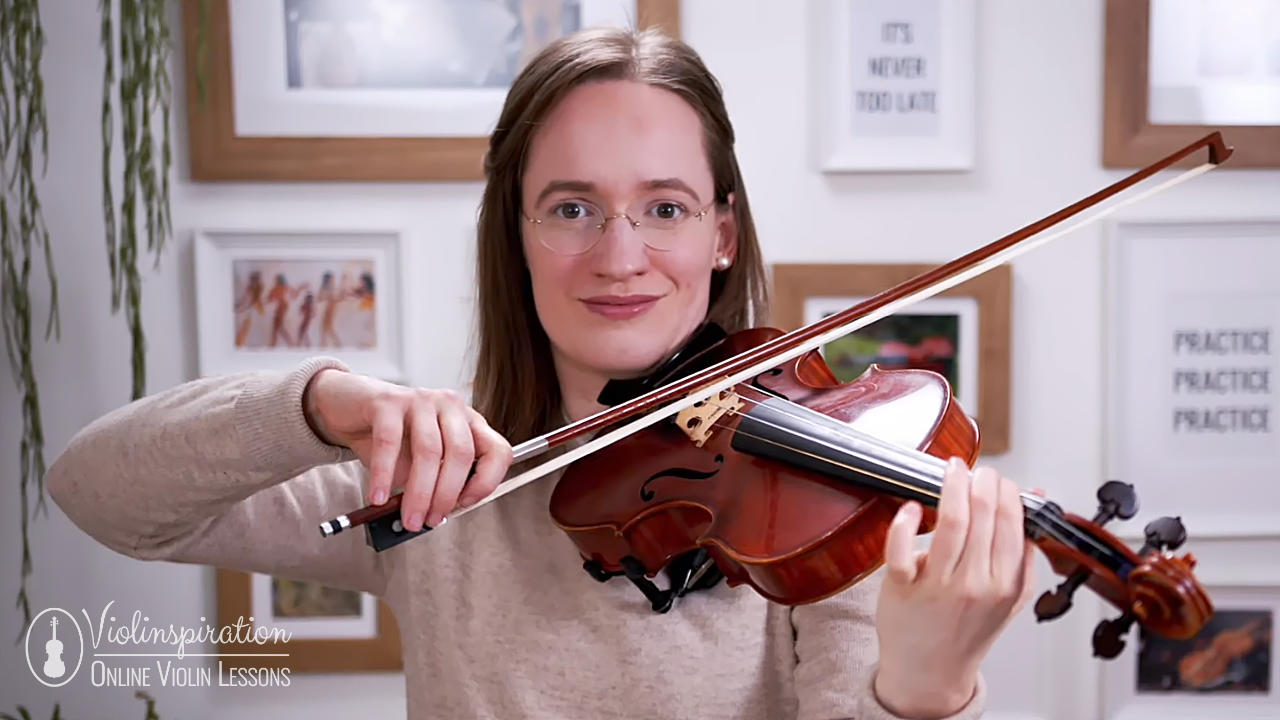
4. Choose a comfortable outfit you feel good in
Do your best to feel good! Many musicians actively choose an outfit they feel confident and comfortable in. If you feel good about what you’re wearing, you will feel less nervous and more excited to share. At the very least, you will want others to see your outfit. Just make sure you are able to move your arms adequately and can keep good posture.
For women who like to wear heels, practice walking in them and playing in them before your performance, so you know you can maintain balance. You definitely don’t want to drop your violin!
5. Interact with your audience
Even if the stage is just your living room, the performance starts when you walk up to the spot you are performing in. From that moment, it is important to make eye contact with your audience members. This will be a great way to form a direct connection with them. If you are looking down at your feet, this gives the sense that you feel uncomfortable and thus, the audience will also feel less comfortable.
Making contact in between songs or after the performance also reminds you of who you are playing for and why you are performing. Remember these people watching are here to root for you! Acknowledging them at the end of the performance as a thank you can be nice to make the performance feel more personalized.
Especially at the end of the performance, the audience will clap to congratulate you. Even if you are unhappy with certain aspects of the performance, accept the applause graciously. The fact that you are performing at all should be a great accomplishment you are proud of.
6. Move to the music
When listening to music or watching musicians live, many people find themself tapping along, moving head to the beat, or dancing along in some capacity. Music is meant to speak to us and move us, so try to help your audience engage with the music by you leading them. Move along to the phrase or sway with the melody. If the audience sees you enjoying yourself and the music, they will feel more encouraged to do the same.
7. Be okay with being uncomfortable
You will feel a lot of adrenaline while playing, but the adrenaline is what makes the performance special and gives extra energy. The nerves are totally normal! If you have never performed in front of other people before, you might get stage fright and suddenly feel super nervous. You may also get this every time you perform – it’s all normal and very common, even for professional musicians. With anything in life, the more we get used to the nerves, the more we will know how to manage them on performance day.
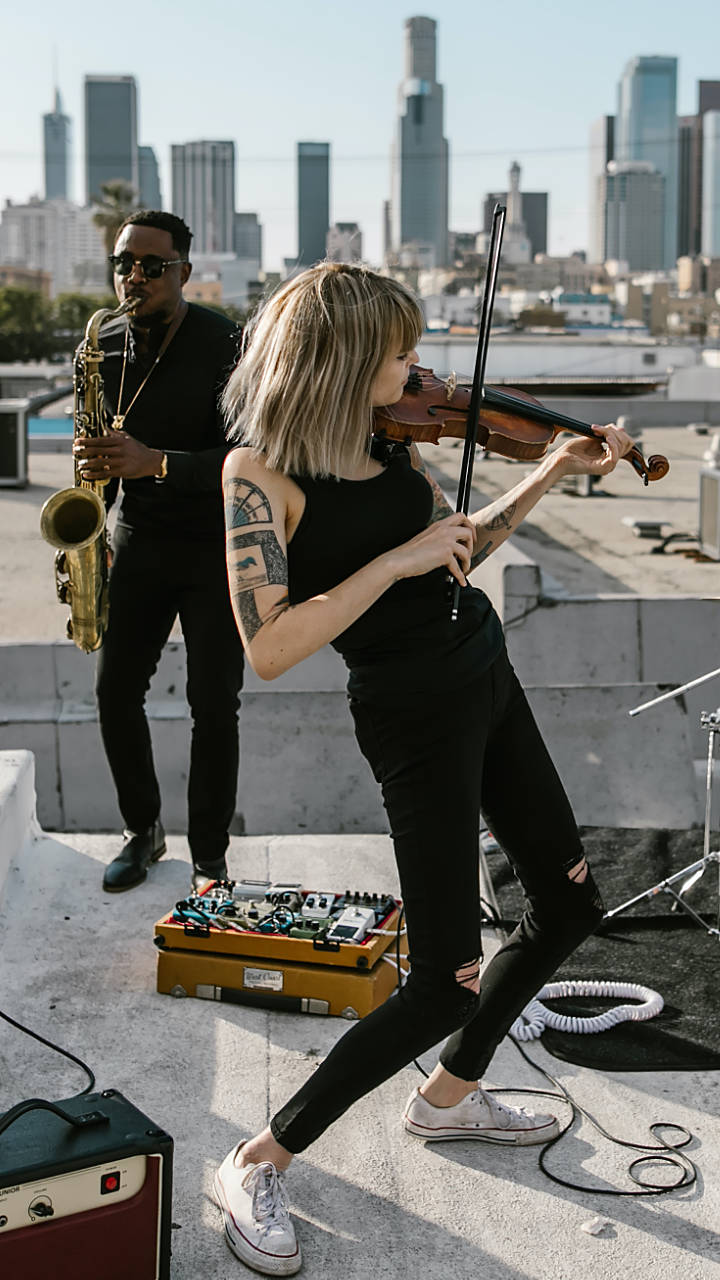
Do not think about the technical aspects or any mistakes that might happen, just enjoy every moment for what it is.
8. Practice performing
Finally, practice performing as much as you can. Performing is not the same as playing your pieces in your practice sessions. Even the little things like walking in front of your audience, taking a bow, or tuning your strings feel so different in front of an audience. For the music itself, practicing playing it all the way through in the way you will perform is important. You aren’t going to stop in your performance so you want to be comfortable making mistakes and moving on.
For the audience part, try to imagine playing in front of your crowd ahead of time. If possible, try to even do a practice run-through in front of family or friends.
There are also other ways to practice performing. As a student at Julia’s Violin Academy, you have the opportunity to practice performing on monthly informal member recitals. Many brave violinists from the JVA community share their progress, favorite tunes, and have fun while supporting each other! Also, for non-performers, it can be great fun to join, to get inspired by seeing how others just like you are progressing, and by listening to a wide variety of songs that you may want to learn yourself too!
If you are already a JVA member, click here to check when the next members’ recital will take place.

If you didn’t enroll yet, click here join now!
Playing the violin is not just about practicing alone—it’s also about building confidence in performing. Whether you’re playing for family, friends, or a larger audience, getting comfortable with performing is an important part of the journey.
At my violin camp, Violin Villa , you’ll have the perfect opportunity to practice performing in a supportive and encouraging environment. From playing in an orchestra to participating in fun music workshops and games, you’ll gain valuable experience sharing your music with others. It’s a great way to overcome stage fright (more on this in a moment) and enjoy the rewarding experience of playing for others!
Tips for Combating Stage Fright
Stage fright can be an awful feeling – you mentally know you are prepared for the performance but your stomach is in knots and you seem to forget how to play anything. It can stop successful artists in their tracks. However, remember that the cause is the same biological response as when you feel the excitement. Artists that are able to better manage stage fright are the ones that turn the anxiety into excitement. For violinists who experience stage fright, here are some tips I recommend to try to counter the nerves and use them to have a fun performance.
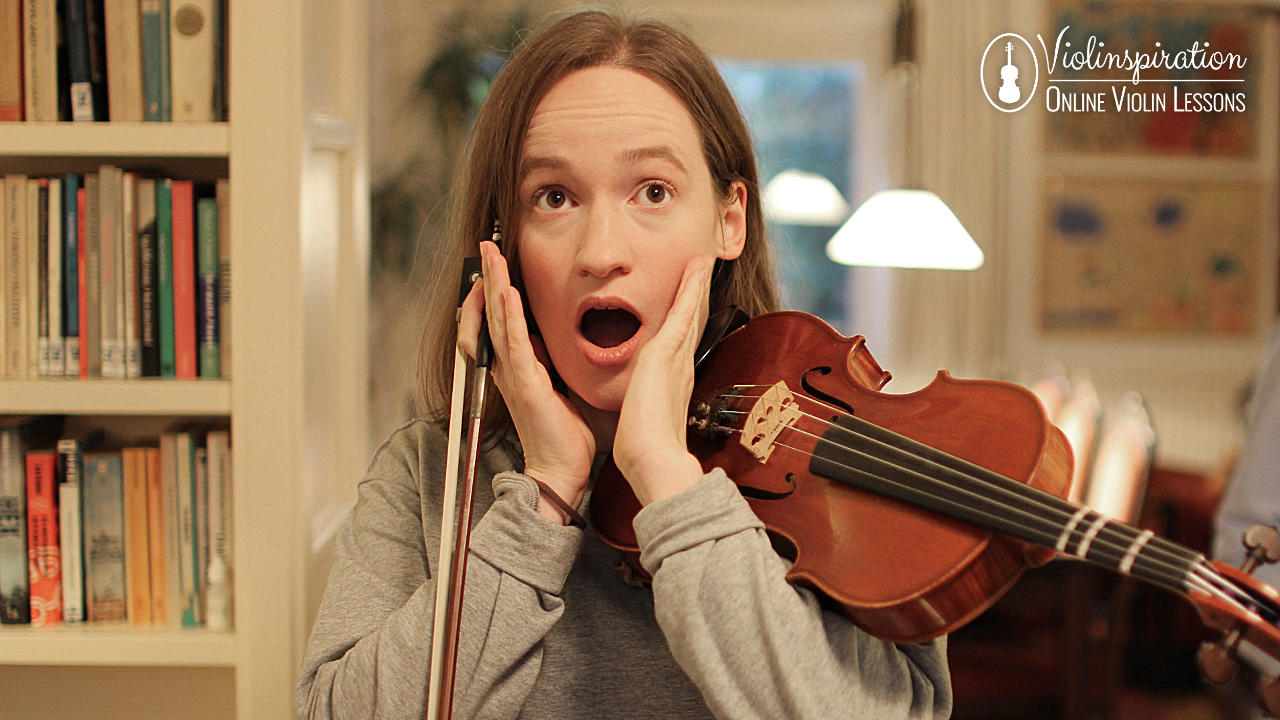
1. Do breathing exercises
You might be surprised at how much your breathing changes when you are nervous. Your breath will likely get shallower and quicker, which will also speed up your heart and make you feel more anxious. Take long, slow, deep breaths from your stomach. Try doing a guided breathing exercise to clear your mind.
2. Accept mistakes
Learning to accept that you will mistakes is a major step in combating stage fright. Of course, you want to play your best and you know how much you’ve worked to be at performance level. At the same time, under stress and excitement, you might be surprised that things don’t sound or feel the way they normally do. Try to still be musical and tap into the confidence that you have to start the performance. Know that not everything will go perfectly, and that is okay. The performance itself is a great milestone of your hard work.
3. Feel secure that people are not judging you
The audience is coming to watch you succeed and share in your success. They want to see you show off your newly learned skills. So don’t think too much about what they think and if they feel negatively towards you if you make a mistake. It can be easy to start doubting yourself or get insecure about other people’s judgments, but try to remember why are you performing in the first place.
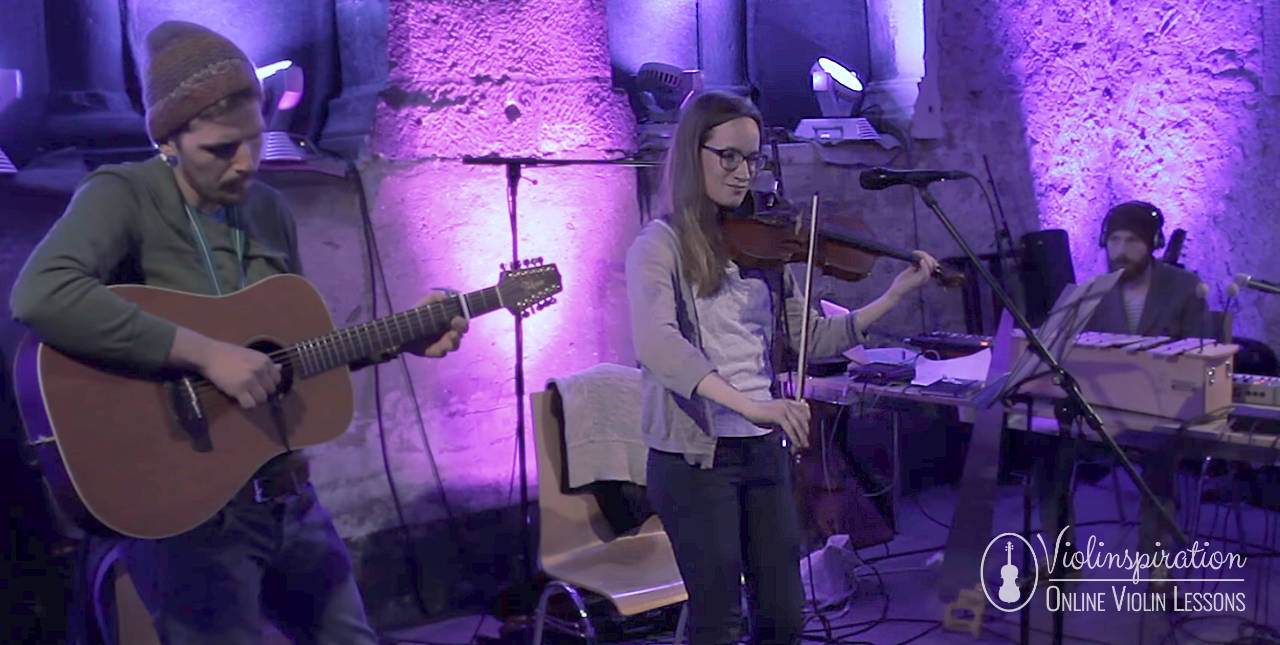
4. Come up with some keywords to ground you
Try to go into the performance with words that make you feel confident and free. Performing in front of others can bring up negative thoughts and when this happens, think about these words or phrases to rewire your thoughts. They can be as simple as, “I got this” or “I am here to share my hard work and music tonight.” Maybe you think about someone in particular who inspires you and keeps you focused on being present.
5. Remember that it is just a performance
Sometimes a performance can feel so daunting that you think it will make or break you. You might be so anxious you don’t want to do it anymore. Try to keep the performance in context. The performance will not cause the world to end. You and your audience will still go on tomorrow and everything will be okay. Keep reminding yourself why you started playing violin in the first place.

Final Thoughts
Having a great stage presence as a musician is a skill we all have to learn. For many, it does not come naturally but there are ways to make performing more fun and freeing. Watch some of your favorite artists on YouTube and take note of how they are performing and interacting with others to make you feel as a spectator. With practice, you can also feel more at ease and encouraged to have a great performance.
